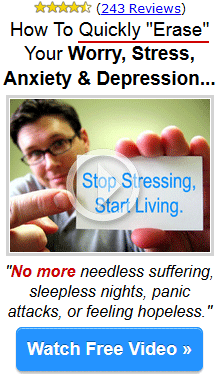Specific Phobia
by National Insitute of Mental Health
"I'm scared to death of flying, and I never do it anymore. It's an awful feeling when that airplane door closes and I feel trapped. My heart pounds and I sweat bullets. If somebody starts talking to me, I get very stiff and preoccupied. When the airplane starts to ascend, it just reinforces that feeling that I can't get out. I picture myself losing control, freaking out, climbing the walls, but of course I never do. I'm not afraid of crashing or hitting turbulence. It's just that feeling of being trapped. Whenever I've thought about changing jobs, I've had to think, "Would I be under pressure to fly?" These days I only go places where I can drive or take a train. My friends always point out that I couldn't get off a train traveling at high speeds either, so why don't trains bother me? I just tell them it isn't a rational fear."
Many people experience specific phobias, intense, irrational fears of certain things or situations: dogs, closed-in places, heights, escalators, tunnels, highway driving, water, flying, and injuries involving blood are a few of the more common ones. Phobias aren't just extreme fear; they are irrational fear. You may be able to ski the world's tallest mountains with ease but panic going above the 10th floor of an office building. Adults with phobias realize their fears are irrational, but often facing, or even thinking about facing, the feared object or situation brings on a panic attack or severe anxiety.
Specific phobias strike more than 1 in 10 people. No one knows just what causes them, though they seem to run in families and are a little more prevalent in women. Phobias usually first appear in adolescence or adulthood. They start suddenly and tend to be more persistent than childhood phobias; only about 20 percent of adult phobias vanish on their own. When children have specific phobias - for example, a fear of animals - those fears usually disappear over time, though they may continue into adulthood. No one knows why they hang on in some people and disappear in others.
If the object of the fear is easy to avoid, people with phobias may not feel the need to seek treatment. Sometimes, though, they may make important career or personal decisions to avoid a phobic situation.
When phobias interfere with a person's life, treatment can help. Successful treatment usually involves a kind of cognitive-behavioral therapy called desensitization or exposure therapy, in which patients are gradually exposed to what frightens them until the fear begins to fade. Three-fourths of patients benefit significantly from this type of treatment. Relaxation and breathing exercises also help reduce anxiety symptoms.
There is currently no proven drug treatment for specific phobias, but sometimes certain medications may be prescribed to help reduce anxiety symptoms before someone faces a phobic situation.
How To Get Rid Of Phobias Naturally
Phobias and fears are common - over 10% of people experience a simple phobia at some time. From elevators, spiders and birds, to heights, dentists and open spaces... Everything is in our own mind. Did you know that it can be cured in a natural way, without medications? The most natural way to get rid of fear or phobia is to influence the place where it was created - your mind. The process is simple... We have created the list of the most common fears and phobias. Follow this link and choose the phobia you suffer from, and download your cure session!.

Freebies & Discount Codes
Find out freebies and coupons for savings on health products available on the Web



















